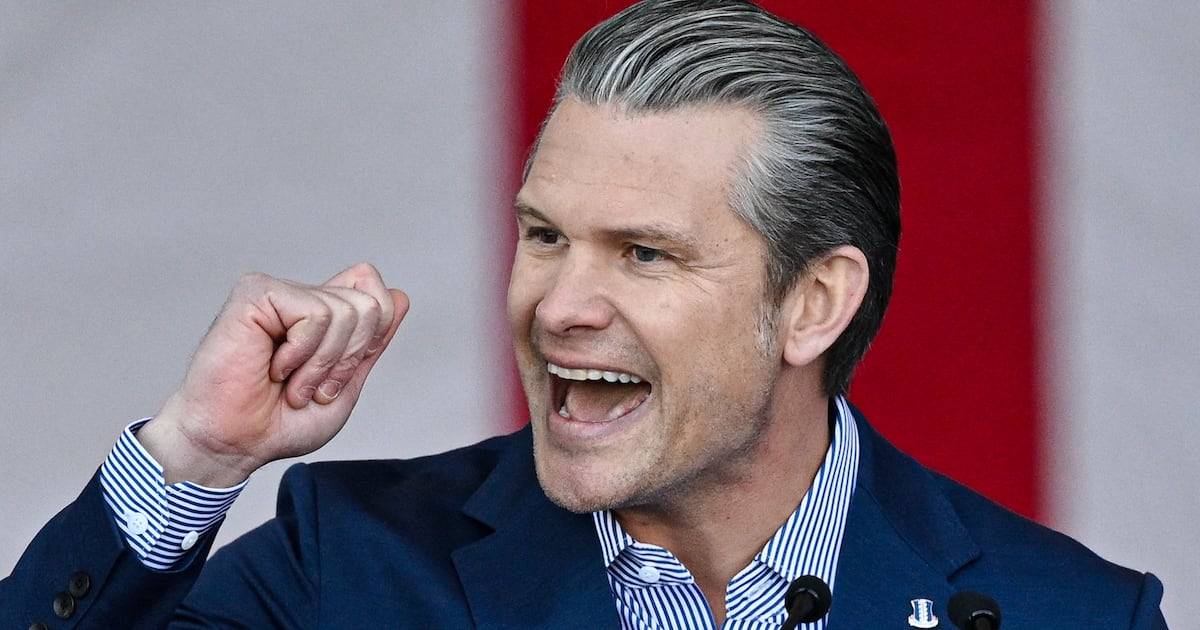The House voted overwhelmingly with more than 400 votes to back President Biden’s executive order banning imports of Russian oil and gas, but that won’t stop Republicans from blaming Biden for rising gas prices. Whatever gains Biden might make in his approval rating are likely to come tumbling down if gas reaches five or six bucks a gallon. History shows that the fortunes of presidents rise and fall with what the meter says at the pump.
Democrats need answers to what’s already coming. Ohio Senator Rob Portman says Biden’s decision to cut off the Keystone pipeline cost 800,000 barrels of oil, more than the 600,000 barrels coming from Russia. But Keystone is not operational. The former president made a lot of noise about getting the permit, but he didn’t get the pipeline built. So, this is an imaginary 800,000 barrels.
“Drill Baby Drill” was the GOP’s battle cry with Sarah Palin unleashing the slogan in her 2008 debate with then Vice President Biden. Republicans are pushing the same outdated policy to confront today’s energy crisis, and it won’t work. You can’t drill your way out of war with a nuclear power when global markets control the flow of oil, but you can place the blame on Russian President Putin for waging war like a barbarian and making the extra money at the pump the price we pay for our freedom.
“Putin’s tax hike” has a nice ring to it, but how far will it get Democrats in their messaging against GOP pummeling? That’s the question we put to James Carville, the Democrats’ legendary strategist and attack dog. “Farther than you are, certainly better than nothing,” he says. “But you’re on much better ground when talking about roads and bridges and jobs. Politics is about taking turf. Stay on the high ground.”
Pressed for an answer that might secure high ground like his 1992 slogan, “It’s the economy, stupid. And don’t forget health care,” he doesn’t take the bait. “We’re essentially at war. High prices are affecting people, but what’s the alternative? Not every problem in politics has an answer, but some answers are better than others. Don’t just look at your gas gauge, look at everything else going on around you.”
With Democrats pressing the White House for a unified message that can carry them into the November midterms, Carville suggests going on the offensive against Republicans as the “Radical MAGA Party,” but in the midst of “an extremely serious foreign policy crisis,” he’s not tossing off any glib rejoinders. “I think my answer is that when you can see there are problems, turn to more favorable turf. Give a little ground and attack in a different spot. Yes, gas prices are high, we’re working on it.”
Republicans falsely claim that Biden’s unfriendly policies toward the fossil fuel industry hamper fuel production. “That’s absolutely untrue, they’re sitting on more than 9,000 approved permits and 13 million acres of federal land,” says Jenny Rowland-Shea, deputy director for Public Lands at the Center for American Progress. “Oil and gas companies are raking in record profits, and they’ve been pretty candid about not increasing output. When people are paying a premium at the pump, they should step back and consider who’s benefiting. It’s not Biden. They made $75 billon in the last year in profits.”
Trying to blame Biden’s domestic policy for the shortfall is a stretch when he only has control over drilling on federal lands, which amounts to about 1 percent or 1.5 percent of global output. Truth is there are thousands of permits that oil companies are not accessing because it’s not cost effective. They’re making their decisions on the expectation that demand for fossil fuels will decrease, so today’s drilling will not result in future profits. Also, this is a NIMBY issue (Not In My Backyard). Florida Republicans were first in line to object to drilling off their shores. Trump quickly backed off a drilling plan in 2018 after then Florida Governor Rick Scott objected.
It’s the industry’s choice not to drill. America is now the largest producer of oil in the world and has not yet achieved independence because it’s a global market, and that market is sensitive to world events, like Russia’s invasion of Ukraine and the crippling sanctions that followed. It was definitely cringeworthy to read the Wall Street Journal report that the Crown Prince of Saudi Arabia, Mohammad bin Salman (MBS), had refused to take a phone call from Biden about increasing the Kingdom’s oil output, and that Biden aides had traveled to Venezuela in hopes of jarring loose some of its oil. If that isn’t distressing enough, the Biden team and Energy Secretary Jennifer Granholm have appealed directly to the oil and gas industry to step up to the crisis at hand. “We are in an emergency, and we have to responsibly increase short-term supply where we can right now to stabilize the market and minimize harm to American families,” Granholm said last week.
Polls show overwhelming support for barring imports of Russian oil even if the ban raises energy prices, with 79 percent of Americans in one poll (Wall Street Journal) and 71 percent in another (Quinnnipiac). Republican support is lagging 77 to 88 percent behind Democrats in the WSJ, and by a greater margin, 66 to 82 percent in Quinnipiac. Still, good intentions often get overtaken, and Biden probably can’t count on those numbers for long. Political messaging can only go so far. “The real answer,” says Carville, “demand (at the pump) goes down and supply goes up.” He lives in Louisiana, an oil producing state, and if the government wants more oil, they may have to guarantee a price and assume the risk, or it won’t happen.
For now, with the war in Ukraine in a perilous phase, partisans are holding their fire. Social media reflects the unease Americans feel griping about the higher cost of gas compared to the hardship and death innocent civilians are experiencing. For now, Republicans and Democrats are broadly aligned on the threat Russia’s aggression poses to international security. But that too will fracture. “Ask Moscow Mitch,” Carville says at one point when pressed about the politics of gas prices, adding, “I don’t think anybody can accuse my party of being soft on Russia.”
Critics hung the label on Senate Minority Leader Mitch McConnell after he led the opposition in January 2019 to enforcing sanctions against Russian oligarch, Oleg Deripaska, for “a range of malign activity around the globe.”
Carville brought up Moscow Mitch almost as an aside. Now’s not the time to remind voters how cozy Republicans were with Putin and his cronies during the Trump years. That will come later, as the midterms loom. “Political communication is the only endeavor that you multiply by subtracting. The less you say, the more you’re heard,” he says.
This is one of those times, at least for now.








